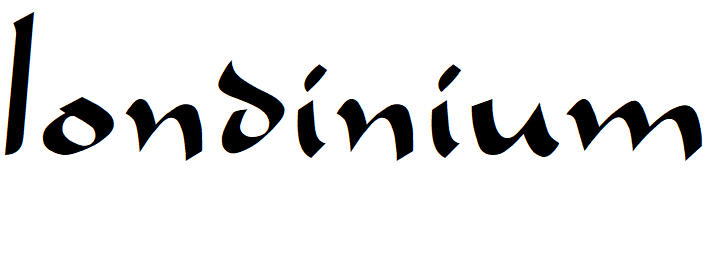Delius Society Journal: The Gluepot Connection is "a superb recording"
/"Some thirty years ago, it was my habit, generally on alternate Saturdays, to call at my boyhood home and, after lunch, to drive my late father to our local football ground where we held season tickets. Because of the timing, I always caught at least a part of Ned Sherrin’s Loose Ends programme, and became used to the frequent references to the hostelry to which the assembled studio party would repair at the end of each week’s broadcast. When I opened the review copy of this new CD by the Londinium choir I was initially mystified by its title, but enlightened by the discovery that it derives from the nickname given to their watering place (more correctly The George public house) by Sir Henry Wood, who complained that his Queen’s Hall orchestra were detained at ‘that bloody Gluepot’.
As so often before, our friends at Somm Recordings have done us proud with a superb recording of music by composers who either frequented the titular establishment or had some musical or professional connection with its clientele. In his autobiography, Musical Chairs, Cecil
Gray refers to those he met there, the fact that his last meeting with Peter Warlock was in another of their haunts about twenty yards away, and to ‘other dead friends whose spirits haunt this ghost-ridden locality…’. And they are now recalled in this interesting collection of English a cappella works from the first half of the twentieth century (and a little beyond).
The CD begins, by coincidence, with the work which opened the subject of my previous review (Delius Society Journal 162, p63), Warlock’s The Full Heart (dating from 1916), his earliest choral work (a setting of two verses by Robert Nichols), and only now becoming deservedly better known. Clearly a product of his early infatuation with Delius, it reflects the rapturous atmosphere conjured by his mentor in his own choral writing. There follows a set of Four Seasonal Songs by Alan Rawsthorne, not representing each one in turn as might be expected, as three take the theme of Springtime, and the other is a homage to Autumn. All the words, like those of most pieces on the CD, date from the sixteenth and seventeenth
centuries.
Next comes the work I enjoyed most, John Ireland’s exquisite The Hills, which has the quiet pastoral atmosphere of his best piano music. The choir are at their best here in this sensitive and moving performance.
Arnold Bax is heard twice on the CD, the next item being the wellknown I Sing of a Maiden (Anon 15th century), also set by Warlock under the more familiar title As Dew in Aprylle. Then the first of two pieces by Alan Bush, both of which are settings of poems by his wife Nancy Bush. The first, Like Rivers Flowing, celebrates the landscape around Plynlimon, a
mountain in Wales.
Delius is represented on the CD by just one work, though a good choice for a miscellaneous selection, On Craig Ddu (written in 1907), which also takes as its theme another mountain in Wales which inspired Arthur Symons’ evocative verse.
There is at least a nod in the direction of the much-neglected output of female composers of this period by way of the inclusion of Elisabeth Lutyens’ Verses of Love, the most recent composition on the CD, dating from 1970. A setting of words by Ben Jonson, it contains some innovative writing, including distinctive glissando passages.
The composer occupying the most playing time is, understandably, E J Moeran, with his Songs of Springtime, again settings of sixteenth and seventeenth century poems, including two by Shakespeare, and William Browne’s Good Wine (the jolliest item on the CD) which reminds one of Moeran’s association with Warlock and the often-quoted remark by one of the many critics they failed to impress that ‘it was a pity he wrote all those songs about beer’!
After William Walton’s Masefield setting, Where does the uttered music go?, which typifies the composer’s lyrical but jaunty style, we hear another delightful piece by John Ireland, Twilight Night, a poem by Christina Rossetti. And then the work with perhaps the most striking background, the second of Alan Bush’s pieces, as mentioned above with words by his wife Nancy, entitled Lidice, written in memory of the Czechoslovak village destroyed by the Nazis in 1942. Bush himself is seen in a photograph in the CD booklet conducting the piece on the site of the atrocity in 1947.
The final work is Arnold Bax’s a cappella masterpiece Mater ora filium, dating from 1921, a setting of a medieval carol, which the choir carries off splendidly, as it is written for multiple parts and makes huge demands in terms of tonal complexity and vocal range.
I have to admit that this CD was my introduction to the Londinium chamber choir (founded as recently as 2005), but I was extremely impressed and will be looking out for more of their work. They have evidently established a reputation for imaginative and eclectic programming, though specialising in lesser-known works of the twentieth century. They are led by musical director Andrew Griffiths, whose background is in opera as well as broadcasting. He produces an authentic and at times thrilling sound on this CD, and is to be congratulated in making a highly appropriate selection from the rich heritage of the English choral repertoire. The CD was recorded at All Hallows, Gospel Oak, a very suitable venue with a resonant acoustic which suits the choir’s performance admirably. Available from Somm recordings at £11.00, this would be a
welcome addition to anyone’s record library and is highly recommended."
Richard Packer, Delius Society Journal (April 2018)
